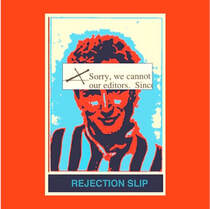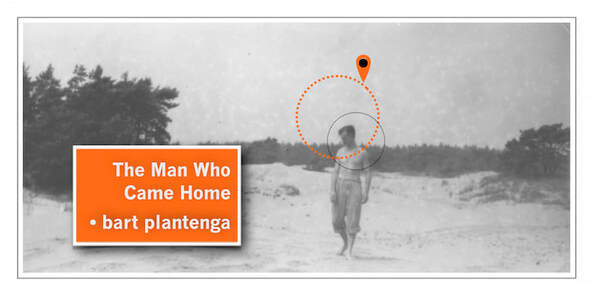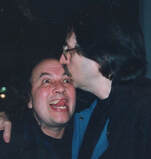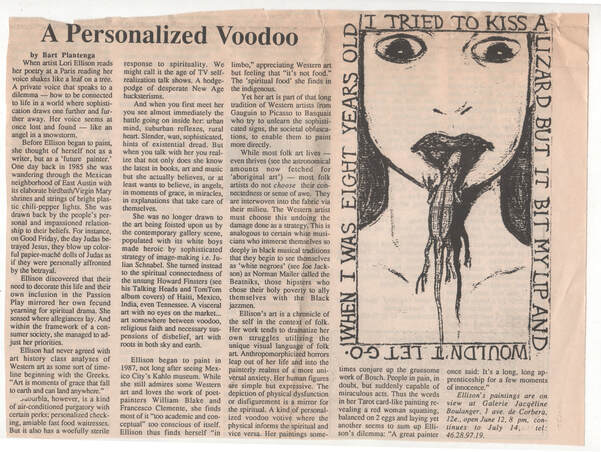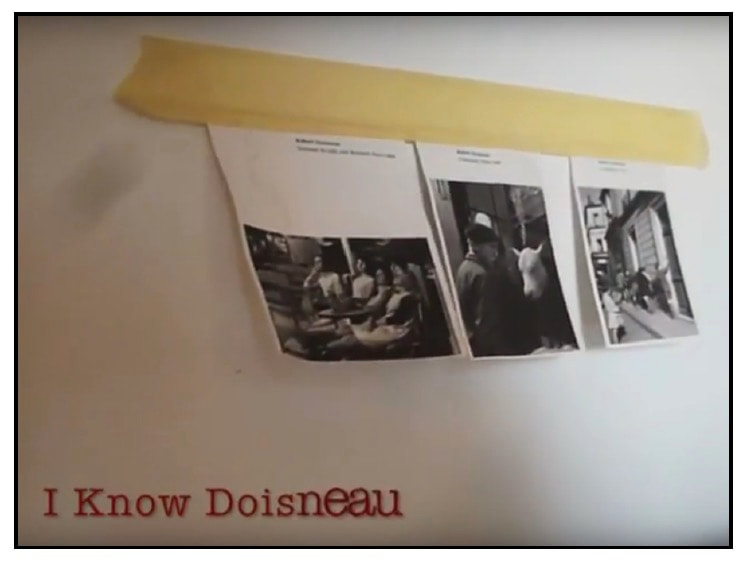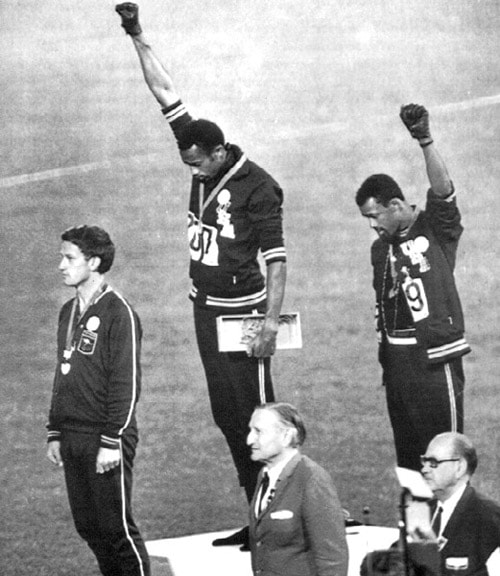|
How the Soul Remains Miraculously Intact Despite 2000 Rejections, Vox Populi, 09.20
Yodeling, Music around the World: A Global Encyclopedia, ABC-Clio, 11.20. |
|
|
Happy Birthday Mother, Who Was Disappeared by Forces Beyond Her Control, Amsterdam Quarterly #23. More here
|
|
A Transsexual, a Chainsaw & a Soiled Toilet, Vox Populi, 2018
|
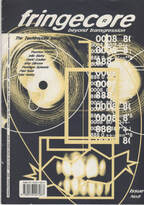
THE STRANGE TERRITORY OF THE BODY, FRINGECORE no. 8, 1999, Belgium
The strange things people do to their bodies in the name of faith, curiosity, the limits of pain, hoping to live beyond the physical body ... Download PDF to the right ➞ |
| ||||||
|
Boatspotting Amsterdam Quarterly 25
|
|
Mike Golden: The Unbearable Beatnik of Lite – & Dark, RIP, the death of friend Mike Golden, Sensitive Skin, 08.19
|
|
About Refugees in the Netherlands: I worked in a Refugee Crisis Center for 15 months Refugee Center Part 1: The Good, The Bad, & The Funny, Vox Populi. In Amsterdam, Refugees Find Shelter From the Storm Truthdig. Amsterdam Refugee Center — Guarded Hope: Vox Populi, The Art of Documenting the Undocumented, Truthdig, the refugee art of Domenique Himmelsbach de Vries reprinted in Framer Framed.
|
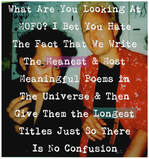
Jose Padua’s Poems — Where The Length Of The Titles Are, If Not Everything, At Least Something To Amuse Or Amaze, Vox Populi 12.18
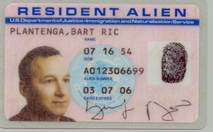
The Green Card is Salmon: The airport as a microcosm for all of the fears we have about society in general. It is about the airport as police state perfected. Published in Airplane Reading in 2011.
|
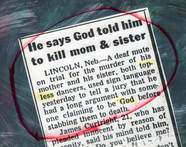
The Disabled Enabled Enough to Kill reenacts memories but also analyzes images of 2 articles I had saved from the Daily News since the mid-1980s about odd murders. Published in Unlikely Stories: Episode IV.
|

Encounter with Ginz: Listen, I wasn't out gunning for Ginsberg. I just wanted to relativize the idolatry that surrounded him & how he was victimized by his own fame &, simultaneously, was able to parlay this fame for some gain. This takes nothing away from his great (early) poetry and his activism & it was meant only to make him human through exposure of his foibles. Available: About.com in 2010.
|
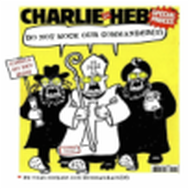
Supression of Mirth + Scurrilous Laughter: The re-publication of Suppression with a Charlie Hebdo update addresses the Paris assassinations. Co-published in the Scottish magazine Ol' Chanty.
|
|
Lori Ellison: A Personalized Voodoo,
Paris Free Voice, 1990 |
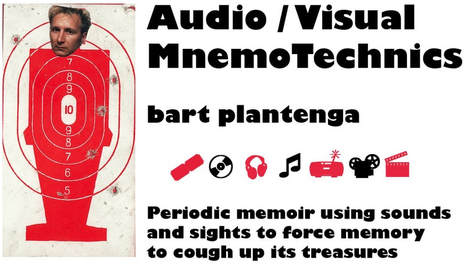
MnemoTechnics: Essays in Urban Grafitti on the subject of how photos & music trigger memories. The Geographical Rewriting of Memory looks at how sound rekindles memories, The Long March: Don’t fall asleep on the Metro-North Train out of Grand Central late at night. Happy Mother’s Day: Furman’s Mom visits his East Village apt. Purple Manta Ray: Death of a Playboy: Cool neighbor suicide. From Captain Yossarian to Captain Stanley & Back: remembering LES cartoonist. Raised Fist Salute: 1968 Olympics Black Power. The death of Mark McCawley [RIP] spelled the end of Urban grafitti as well. I hope to find new homes for these essays some day.
|
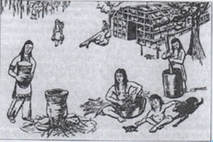
The Mystery of the Plockhoy Settlement: Originally appeared in the Mennonite Historical Bulletin 62 (April 2001): Pieter Cornelisz Plockhoy from the Zeeland province of Holland in the mid-1660s attempted to create a utopic [proto-socialist-egalitarian] settlement in the New World. The Plockhoy settlement was the first voice against slavery and preached friendship with the Indian. Also in Dutch in Kroniek van het land van de zeemeermin.
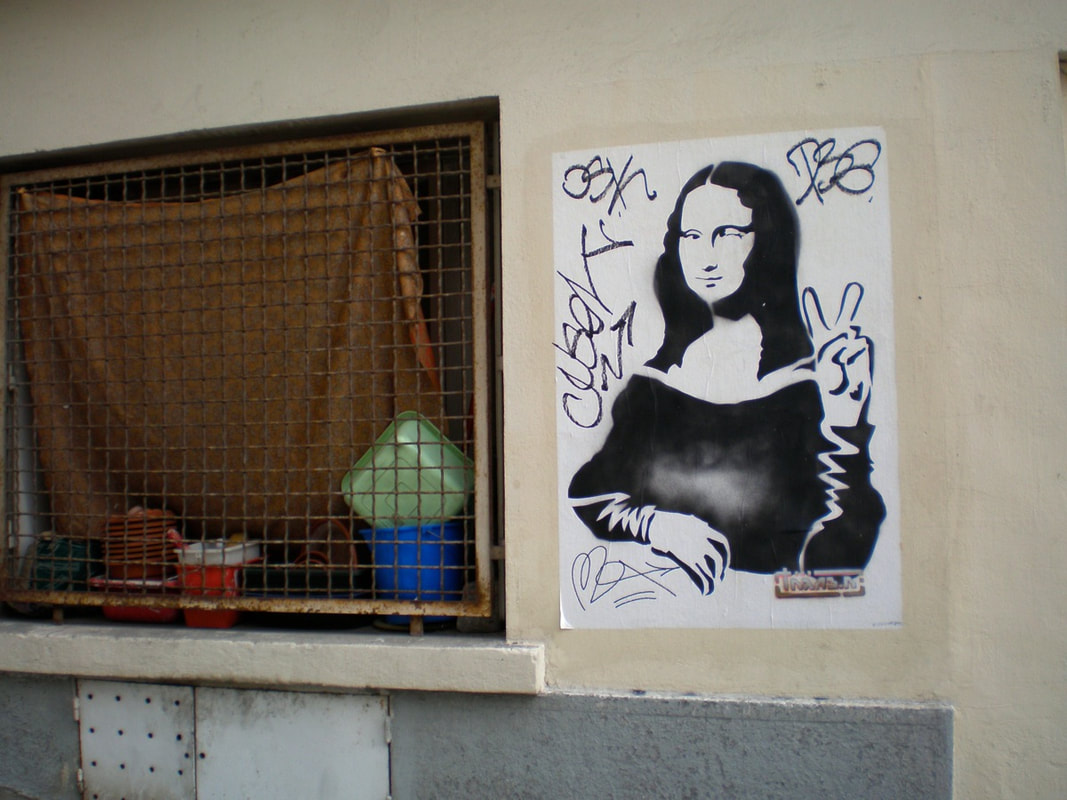
Paris Free Voice, April 1990: 2-part series makes sense of the vague magnitude of [living in] Paris by arranging facts to create a kind of collage. I received VERY indignant responses from American doctors living in France at the time, calling me irresponsible for saying that smoking must be kept in perspective, that WORRYING about smoke or getting all pissed off every day at smokers might have as much of an effect on longevity as smoking..." Imagine 2,068,000 Parisians crammed into 105 km (not including 11 km of bones that lie under Paris in the catacombs) with 500,000 or so dogs (4760 dogs per km). This means you have about a 1 in 4 chance that a Parisian you hear complaining about graffiti is a dog owner. And this dog owner will be ignorant of the fact that although 4,000,000F go annually to cleaning up ... For the rest of the article.
|
I Know Doisneau, Ekphrastic Review, 10.18, essay & short video about a strange phenomenon noticed in the book Paris Scratch
|
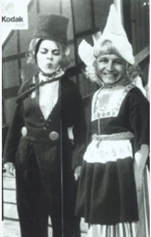
The Dutch Door to America: “One nation is a copy of the other,” said John Adams on his first visit to the Netherlands; 2 centuries later an American visitor to Holland can still trace the connection. Award-winning story by Nina Ascoly & bart plantenga published in American Heritage about the roots of America to be found in the Netherlands. It won the Lowell Thomas Travel Writing Award, presented in 2000 by the American Association of Travel Writers for the outstanding foreign travel feature published in 1999.
|
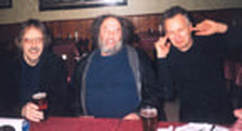
Unbearables Encyclopedia entry about the group: Unbearables for Exquisite Corpse called “New York: The Unbearables (b. April 27, 1986, New York – d. Dec. 7, 1994, New York). Photo of the Three Unbears, Ron, Mike, bart by passing imbiber. Also called Unbearable Beatniks of Lite, Wannabeats, Unbearable Bootlicks of Life, Unmentionables, Unbeatable Scriv-niks of Spite,Unbees, were the loose screws of a "literary" movement that was based on the transgressive mediocrity concepts of micro-hyper-marketing and post-ironic juvenile delinquency ... and a reassessment of the meaning and moaning of this group: Barely Bearably Unbearable: Chronicles of an Irreverent or Irrelevant Writers Group, Angry Old Man, 2018
|
|
Raised Fist Salute
originally appeared in Mark McCawley's Urban Graffiti Magazine under my some-timely "Urban Audio / Visual MnemoTechnics" memoir using sounds and sights to force memory to cough up its treasures. Nice mag, nice guy, nice editor but both RIP. “The greatest problem is we are afraid to offend our oppressors. I had a moral obligation to step up. Morality was a far greater force than the rules and regulations they had.” • John Carlos “If I do something good then I am American, but if I do something bad then I am a Negro!” • Tommie Smith I got together with filmmaker-friend Mark Boswell in his clammy Greenpoint, New York kitchen shortly after the Olympics. While we tapped multiple Polish Zywiec and Tyskie beers, we somehow got onto the subject of iconic images and – maybe not so coincidentally – both of us came up with John Carlos and Tommie Smith’s raised fist salute at the 1968 Olympics as one of the mind-blowing images that remains indelibly engraved on our subconscious. Then we opened up the laptop to watch Youtubes documenting the events surrounding the 1968 Olympics. It brought tears to our eyes – no really – I mean real heavy tears welling up. The image of bronze medalist Carlos and gold medalist Smith’s black-gloved salute on the podium during the medals ceremony after Smith’s record-breaking performance in the 200m dash, provoked a global scandal that led to disgrace, vilification, and ostracism for the participants, including silver medalist, Australia’s Peter Norman who showed his support by wearing an Olympic Project for Human Rights badge (OPHR) along with Carlos and Smith. The eyes of the world fell upon Smith, Carlos and Norman as they crossed the field to participate in the medals ceremony. Smith and Carlos arrived shoeless, climbing the podium in their black socks, which to them symbolized the poverty that black Americans encountered daily. Smith wore a black scarf around his neck to represent black pride while Carlos wore a beaded necklace to symbolize all who had been “lynched, or killed and that no one said a prayer for, that were hung and tarred.” Carlos unzipped his tracksuit jacket to show his solidarity with American blue-collar workers. As “The Star-Spangled Banner” began to play, Smith and Carlos bowed their heads in silence. Smith then raised his fist wearing the right black glove as Carlos raised his left, in a gesture of black unity. And then all hell broke loose. The stadium erupted into a chorus of boos and racial slurs – “Niggers need to go back to Africa!” The anger was so palpable and scary that Smith admitted: “I threw my arms up, and said ‘Please, God, get me out of here.’” I watched way too much of this past summer’s Olympics. Although I used to watch with great wide-eyed enthusiasm back when I was too young to know any better, I could have easily skipped the entire spectacle, except now daughter Paloma [12] is at the same curious place as I was in 1968, plus my mother is 87, well, what are you going to do together after dinner? Right – watch the Olympics. But did we actually get to watch the true Olympics to witness their grandeur, their potential for human glory? Well, not really, unless you consider orchestrated media bites that frame and highlight the Olympic sponsors’ adverts to constitute entertainment. This year’s Olympics had some drama – Usain Bolt et al. – although NBC’s efforts to orchestrate, frame, repackage and reconstitute, made it all seem like footnotes in a story about sponsors. No Olympic event was allowed to stand on its own to gather its own steam and create its own unique dramatic arc. Every dive or fencer’s thrust had the specter of a quip or a sponsor’s appeal trailing off close behind it like a fart caught in a pair of latex slacks. Each event was further peppered by factoids and biographical details followed by the drooling reporter inquiring how he/she felt before the event or, afterwards, how it felt to win/lose. All of this could be called coverage or it could be called scatter logistics: remove the event’s natural narrative and superimpose your own plot on top of the images so that the story’s resolution always serves commerce. Maybe I’m just not so easily impressed any more. Moreover, the athletes – American or otherwise – all seemed to have undergone extensive coaching in motivational, happy-faced, media-speak [hypnotized?], thus these branded role models were able to seamlessly evade all the rough edges of humanity to purvey clichéd analyses [can-do motivation + aspiration + dream + hard work x god = you too] fraught with emotions dipped in nationalism. All of this effectively muffled any unscripted [political] outbursts. This all seems kind of weird as we emerge from the crowded shadows of the Occupy Movement. By the time the Olympics withered into an orgiastic explosion of exuberant excess you would have been hard-pressed to recount the plot of the story although it seemed to have a kind of tawdry underside like you’d just watched an entire season of Tiaras and Toddlers, munching bag upon bag of Bugles in your dirty underwear. I kept hoping for a break-the-mold incident, an OWS solidarity moment but anticipation only taunts disappointment. Make no mistake, the US won the medal count and this is its essential sellability; during a depression, nationalism/patriotism can be endlessly repackaged to sell back to the public. The other side of the medals count was left to the internet numbers crunchers and journalists who have long advocated calculating medals counts based on criteria that take into account the vast disparities in population, wealth and team size among nations. I mean its only fair that if you include countries as populous as China [pop 1.34 billion] along with little inkspots like Trinidad & Tobago [pop. 1.36 million] you introduce an entirely different methodology. Medal counts per capita would look this: Grenada, Jamaica, Bahamas, New Zealand and Trinidad & Tobago would be the top 5, with the US now finishing 47th and China 73rd. If you figure the medals count factoring in GDP you get something similar with Grenada and Jamaica again on top but North Korea, Mongolia and Georgia rounding off the Top 5 GDP, with the US falling to 66th and China at 54th. In 1968, I was impressionable and en route to becoming radicalized by the Peace Movement, poets and novelists and the politics of the day, which Smith and Carlos were an integral part of. Not everything that MLK or Malcolm X or Abbie Hoffman or the Berrigan Brothers or the Black Panthers or the Fugs said but a lot of it. I remember how we thought LBJ, Nixon and Agnew were as bad as ogres could get… and here we are yet another election down the [d]evolutionary trail of willfully stupid mendacity. I mean, there is just no way I could have imagined evil critters like Gingrich, Bachmann, Santorum, Ryan and Romney [never mind some very sinister idgits on the Democratic Party side as well] in 1968. Sick humor is anything but dead and that these characters make Dan Quayle look like a reasonable character makes this devolutionary trend even scarier. The 1968 Olympics came at an [in]opportune moment of almost unimaginable upheaval: Robert F. Kennedy and Martin Luther King had been assassinated, there were riots in America’s streets, the Viet Cong Tet Offensive threatened to blow the war wide open, protests disrupted the US Democratic National Convention and the Mexican government had just shot and killed over 40 of some 10,000 students and civilians protesting against government oppression. An older woman was bayoneted in the back and a young teen was shot at point-blank range. Make no mistake, although BBC commentator Barry Davies, at the time noted that “It wasn’t in any way extrovert or flamboyant. It was a quiet holding aloft of the arm with the black glove,” Carlos and Smith paid dearly for their act of resistance. The US Olympic Committee called their act an “immature behavior incident [and] a willful disregard of Olympic principles.” Smith and Carlos were kicked off the American team and given 48 hours to clear out of the Olympic Village by IOC President “Slavery Avery” Brundage, a Nazi apologist who had no problems with mass Nazi salutes when he was promoting America’s participation in the 1936 Berlin Olympics. He was also a vociferous Apartheid denier. One of the OPHR’s chief goals had been to have Brundage dismissed from his position as IOC president. The backlash by the patriotic mobs, hypocritically indignant media, their own teammates, and sportscasters was swift but continued for years. They were spat at, cursed out, denounced, shunned by teammates, ostracized by the American athletic community and subjected to vicious criticism, rocks were hurled at their homes and they received death threats. A shame-faced America was enraged because they’d tossed dissidence onto primetime TV and right into the laps of the average American. Back in America, Smith remembers: “we were ostracized, even by our own ... We couldn’t find work. People even told us, ‘We can’t get close to you guys because we have our own jobs to protect.’ These were my friends. At least they were my friends before I left for Mexico City.” Or as author Dave Zirin describes it: “They were scorched with scorn.” Media pundits compared them to Nazis. The LA Times proposed they had made a “Nazi-like salute.” Well-known sportscaster, Brent Musburger, at that time a young newspaper stringer, called Smith and Carlos “a pair of black-skinned stormtroopers.” Time described them as “Angrier, nastier, uglier” and they were called “ungrateful,” “petulant,” “opportunists” and worse. Carlos, who grew up in Harlem and often tagged along behind Malcolm X to ask him difficult questions, recently stated: “When Tommie Smith and I raised our fists ... we knew that we would catch hell but we didn’t care ... because we wanted the coming generations to live and breathe as full citizens with equal rights. I was just concerned with right and wrong. We went out there for humanity. We are here 43 years later because the fight is still to be won.” Carlos went on to equal the world record in the 100-yard dash in 1969, and won the American championship in the 220. Both, however, struggled to make the cut in pro football and took various odd jobs like janitor and bouncer and various lower-end sport-related functions. Carlos hit rougher times: running did not yet pay with lucrative sponsor endorsements. He got so desperate one winter he had to chop up his furniture to heat his own house. His wife endured constant press harassment and his kids were teased at school for having a traitor for a father. The marriage collapsed and in 1977, his ex-wife committed suicide. He went on to work for the 1984 LA Olympics and as a track coach. Smith also landed some coaching gigs and in 1999 – his image now fully rehabilitated – he was awarded the California Black Sportsman of the Millennium Award. They survived, amazingly enough, with radical consciousness intact – still feisty, still critical. In 2008, 40 years later, Carlos and Smith’s symbolic gesture had been absorbed into the zeitgeist like MLK’s “I have a dream” speech or Che headshots adorning a million tee shirts and had finally become, in the eyes of straight society and the media that had reviled them for so long, true heroes. That same year, ESPN honored them with the Arthur Ashe Courage Award, declaring that “They were right.” Yea, OK, icons now, testaments to selfless bravery now, but pariahs back then when they were chewed and spit out by one and all: Proof that straight society usually needs half a century before they get it: jazz, human rights, global warming, Godard, noise, Van Gogh, Rimbaud, abstract art, irony. I remember Smith setting that record. I remember Carlos looking over his shoulder and losing the silver to Peter Norman. I remember cutting out the raised fist picture from the local paper and taping it to my resistance collage on my bedroom door. This was my way of writing the narrative at that time so I could better understand it. My father, not prone to get too upset, did get upset because amongst all of this protest on so many levels – fashion, music, literature and politics – age in the form of the Generation Gap was also tossed into the mix to stir up even more emotion and uncertainty, which inevitably leads to increased consumerism. At some point my father had had enough of my insurrectionary-isolationist stance [my room was my indian reservation, my conspiratorial cell] and one day, after so many gestures of perceived contempt, my father came into my room and tore down all my posters and my entire resistance collage and ... a day later, on Saturday, he pulled out a $10 bill and sent me out to buy new posters. He even helped tape the ripped collage back together. Some 30 years later, he came to some kind of terms with this rare tantrum of his, saying he never quite understood why he was defending Nixon at that time, a man he didn’t vote for and didn’t like, and defending a war he ultimately saw as a gigantic mistake ... This was his way of saying sorry, I guess. Peter Norman, who joined Smith and Carlos in their protest, was reprimanded by Australia’s Olympic committee, vilified by the media and passed over for the 1972 Olympics. Norman died in 2006 and Smith and Carlos served as pallbearers at his funeral. • bart plantenga ••••••••••••••••••••••••••••••• Peter Norman, in Matt Norman’s documentary Salute, noted: “It has been said that sharing my silver medal with that incident on the victory dais detracted from my performance. On the contrary, I was rather proud to be a part of it.” • Mexico 1968: What Really Happened When Two Americans Raised Their Fists: • The John Carlos Story (Haymarket Books) by Dave Zirin and John Carlos: • Democracy Now on the legacy of the raised fist: • Smith and Carlos receiving the Arthur Ashe Award at the 2008 ESPY Awards |
